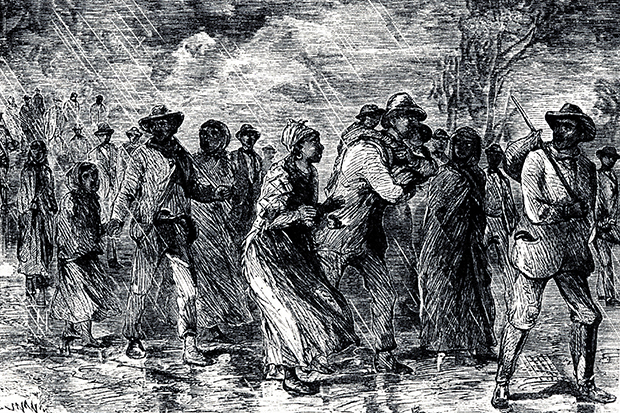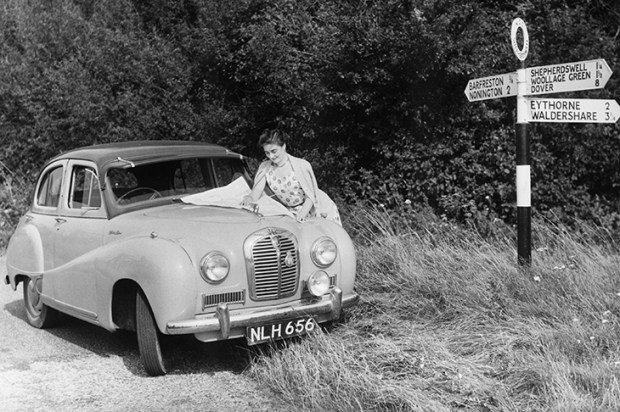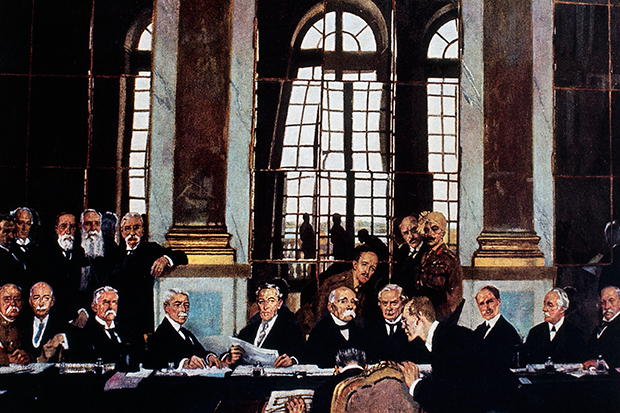The McNulty family in the novels of Sebastian Barry have a definite claim to be one of the unluckiest in all fiction. After serving with the Brits in the first world war, the main character in The Where-abouts of Eneas McNulty is branded a traitor to Ireland, and spends the rest of his days in bleak and terrified exile. In The Secret Scripture, his sister-in-law Roseanne is locked up for life in a Sligo mental asylum for having an illegitimate baby (that’s taken from her). In The Temporary Gentleman, Eneas’s brother Jack is an ageing alcoholic reflecting on the failure of virtually everything he’s ever done.
On the plus side, mind you, the McNultys have generally responded to such relentless misfortune with a stoicism that borders on the miraculous — and, in most cases, while remaining unshakeably noble.
But now, judging from Days without End, it seems the stoicism and maybe even the bad luck were in their genes all along. Here, we meet their ancestor Thomas, who, despite having to leave Ireland (and several dead relatives) in the great famine and ending up in the American army, has the same heroic ability to look on the bright side. ‘The piss froze as it left our peckers,’ he recalls of one winter camp, ‘and woe betide the man with an obstruction or hesitation to their shit, because soon they had a brown icicle on their arse… It was as good a life as most of us had ever knowed.’
He’s not kidding either. Within the next four pages, the same men have endured a flash flood, a yellow fever epidemic and a march across the badlands in which ‘our bellies were gnawed by hunger’. But even then, Thomas is not disposed to pessimism: ‘Desolate and decimated though we were, there was something good there. Something that couldn’t be extinguished by flood or hunger. That human will.’
And so the book goes on, its endless scenes of vast suffering — including that inflicted on the Indians by Thomas and his comrades — described in prose that mixes folksy wisdom (‘A good heart carries across fences’) with lashings of Barry’s celebrated lyricism.
Which, as it turns out, is one of the problems — because the lyricism always feels much more like Barry’s than Thomas’s. The same also applies to the novel’s boundless liberalism. Perhaps it is possible for someone to undergo all that poor old Thomas does while continuing to hymn — and embody — the unquenchable human spirit. Yet even so, his virtuousness goes a lot further than that. Not only is he more or less openly gay, and in a loving relationship with a fellow soldier who helps negroes and rescues injured birds, but towards the end, he self-identifies as trans: ‘I feel a woman more than I ever felt a man … Just a thing that’s in you and you can’t gainsay.’ Meanwhile, having got married, he and his husband adopt an Indian girl, with ‘a laugh like a freshet in a summer meadow’, as part of ‘the little kingdom we have pitched up against the darkness’.
Given that Days without End is so faithful to the Sebastian Barry template, his many fans will presumably lap it up. For us Barry agnostics, however, the effect is not unlike the literary equivalent of a special report by Fergal Keane: so clearly well-intentioned that you feel a bit of a heel for thinking there’s something rather self-regarding in its sensitivity to anguished humanity. Or for wondering if, in the end — and despite Barry’s best efforts — the most heartbreaking thing about the book is its own earnestness.
The post Too good to be true appeared first on The Spectator.
Got something to add? Join the discussion and comment below.
Get 10 issues for just $10
Subscribe to The Spectator Australia today for the next 10 magazine issues, plus full online access, for just $10.
You might disagree with half of it, but you’ll enjoy reading all of it. Try your first month for free, then just $2 a week for the remainder of your first year.














Comments
Don't miss out
Join the conversation with other Spectator Australia readers. Subscribe to leave a comment.
SUBSCRIBEAlready a subscriber? Log in